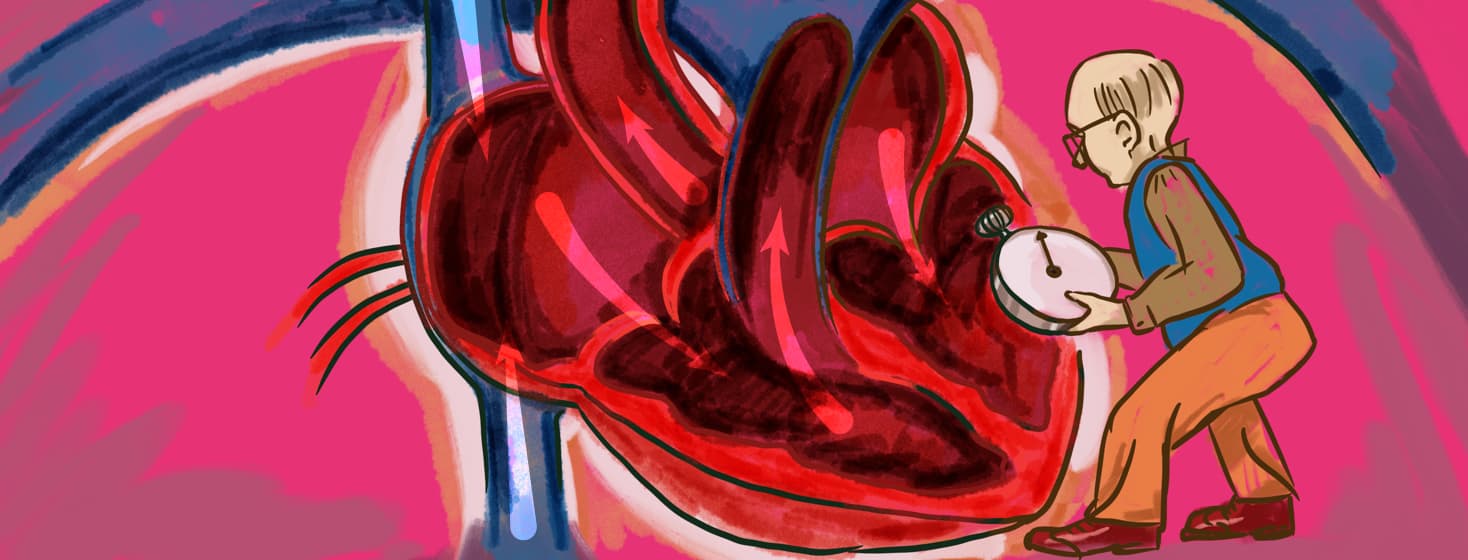The EF Game - Why Do We Care About This Number?
"I hate it when patients fixate on ejection fraction (EF)," I heard from a cardiologist on a clubhouse talk one night. Why do we worry about our EF, and why don't our doctors want us to?
Featured Forum
View all responsesWhat is EF?
EF, or ejection fraction, is a measure of our heart's function. It measures the amount of blood we pump out as a fraction of what is pumped in. Since we pump out blood as we pump it in continuously, the ejection fraction is never 100%, and an ideal ejection fraction is around 55-65%.1
This number is usually determined from an echocardiogram (echo for short) which is an ultrasound of your heart. A technician will take multiple pictures and videos of your heart during this test and measure your ejection fraction. The test itself takes about 30 minutes. EF results can be given either as one or a range if the technician has taken multiple pictures. That range can vary, and I've been given ranges up to 7% at times.1
Heart failure patients commonly have low ejection fractions, less than 40%. This is because damage to your heart's ventricles can impact the amount of blood being pumped out, resulting in what is called reduced ejection fraction. There is another condition called HfpEF, where the patient has a normal or higher than normal EF, but the heart function is still compromised.1
Why do we care about this ejection fraction number as heart failure patients?
Getting a diagnosis with the word "failure" in the name can be terrifying. But, as a result, we want to see that number go up, indicating we are getting better. Strategies to manage heart failure often involve better lifestyle changes along with medications.
The goal is to get the heart pumping at maximum efficiency despite the damages while maintaining a close to normal life – meaning you should feel better. The "feel better" is a complicated and subjective measure, but usually, the doctors want to focus on it.
Aside from being an actual number to compare our progress, EF usually dictates what insurance will pay for if we require external or internal defibrillators or pacemakers. Sure, a doctor can help advocate for a particular therapy if insurance says no, but the burden of that still falls on the patient to navigate.
This number also allows patients enrolled in peer groups to talk to one another and share their experiences. Heart failure is a broad diagnosis. Talking about how we are feeling compared with our EF helps us relate to one another.
My advice
I usually have anxiety leading up to my annual echo. For me, I look at my ejection fraction as a measure of how my heart is doing. I have to remember it is more than this number and that another important measure is how I am feeling.
But how I feel is subjective. An actual measurement of a physical parameter, such as the amount of blood pumping out of our heart, seems more real to me, and I can wrap my head around that.
I am still concerned with my EF number, but there are a few things that I have done to help me understand my condition better.
- I have reviewed my echo results with my cardiologist – she has shown me my videos, what my heart looks like, and how it pumps. I have seen the left ventricle damage and how slow and retarded it is compared with the right ventricle. So I see why and understand why my EF is low.
- I have had differences in EF results, which can be attributed to a different technician or how the technician measures the number. All are within the standard deviation.
- I try not to fixate on this number, but it's hard. So instead, I have learned to listen more to my body and recognize changes in my limitations – always noting this and telling my care team.
What can you do?
If you are still concerned with changes with your EF number, ask questions. For example, ask what a decrease means and if they will change their treatment strategy. Also, ask to see your echo video and understand what the measurement indicates and how your heart behaves. I've learned that when something is wrong, doctors will react, so if you are not getting a reaction, that is usually a good sign!
Do you have a heart failure story? Click the button below to share with our community!

Join the conversation